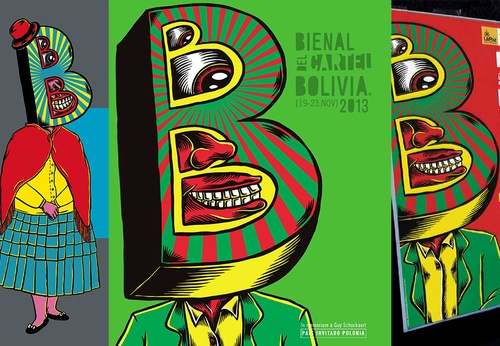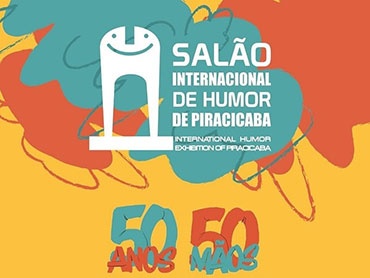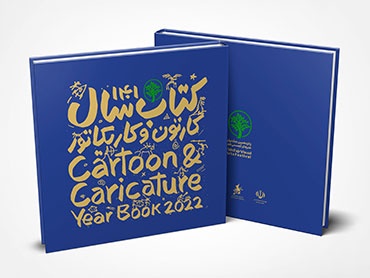
Palestinian Art Exhibition
Palestinian art is the focus of an exhibition at the Patio de Letras (Courtyard of Letters) at the University of Barcelona
The Cloister of Letters of the Faculty of Philology and Communication at the University of Barcelona is hosting, from October 3 to 17, the exhibition "Gaza is Still History," a contemporary art exhibition produced by the Palestinian Museum (Birzeit) that offers a cultural and heritage perspective on the Gaza Strip through artworks. The official opening will take place on October 8 at 5:00 PM in the same space.
The exhibition features a selection of 35 art posters—in A0, A2, and A3 formats—that portray scenes from daily life, urban landscapes, cultural practices, and collective experiences. The themes addressed include art and culture, the war in Gaza, the historical context, and international solidarity, with the aim of highlighting the richness and resilience of Palestinian culture amidst destruction. Beyond its aesthetic value, the proposal emphasizes art's ability to offer an alternative narrative centered on life, memory, and creativity as forms of resistance.
"Gaza is still history" is a pedagogical and artistic initiative promoted by the Arabic and Islamic Studies Section of the Department of Classical, Romance, and Semitic Philology at the UB, with the support of the Vice-Rector's Office for Culture, Memory, and Heritage. Professors Danae Fonseca and Mònica Rius organized the exhibition, which presents part of the content already included in the international conference Khalaqat: Gender and Contemporary Arab Artistic Creation, which took place at the UB in November 2024.
The collection includes works by artists such as Ismail Shammout, Laila Shawa, Heba Zaqout, Raed Issa, Maisara Baroud, and Fathi Ghaben, and has been loaned by various private collections such as those of Saad Abdelhadi, Sultan Al-Qassemi, and George Al-Ama. The exhibition is designed to be accessible and open to the entire university community and the general public, representing an opportunity to reflect on a complex reality from a cultural and humanistic perspective.
More information about the exhibition project can be found on the Palestine Museum website.
Source

- January 27, 2026
Aztecs in the Empire City: “The People Without History” in The Met


- January 27, 2026
The Evolution of Art: From Classical to Digital

- January 27, 2026
What are Visual Arts and Why Do They Matter Today?

- January 27, 2026
Selected Illustration Gallery of Venezuelan Artists

- January 27, 2026
Selected Caricature Gallery of Cuban Artists

- January 26, 2026
Bolivia Poster Biennial (BICeBé 2013)

- January 26, 2026
Selected Gallery of Paintings by Peruvian Artists

- January 26, 2026
Selected Gallery of Watercolor Paintings by Peruvian Artists

- January 27, 2026
The exhibitions "From Tàpies to Siqueir…

- January 19, 2026
The Pulse of Art, Design, and Culture R…

- January 19, 2026
The Argentine museum celebrates 25 year…

- January 08, 2026
Latin American Pavilion Among the New A…

- January 07, 2026
Material Art Fair 2026

- January 05, 2026
The Latin American Pavilion Marks a Mil…

- December 31, 2025
the 10 million-dollar sales of 2025

- December 30, 2025
MALBA Doubles Collection and Reposition…

- December 29, 2025
The FEMSA Collection will celebrate its…

- December 25, 2025
“Ancestral Artist”: A Look at the Craft…

- December 25, 2025
Winner of the 13th Most Important Conte…

- December 25, 2025
Malba Acquires the Daros Latinamerica C…

- December 24, 2025
2026, a Key Year in Cultural Exchange B…

- December 23, 2025
Sacred Art Celebrates Christmas Through…

- December 22, 2025
MACA Inaugurates Exhibitions of Fontana…

- December 20, 2025
Costantini Acquires the Daros Collectio…

- December 17, 2025
ARCOmadrid Announces Participating Gall…

- December 17, 2025
Eduardo Costantini Acquired a Collectio…

- December 15, 2025
From Chile to Gaza: «Palestine Cries,»

- December 15, 2025
Latin American Artists MACLA and Montal…

- October 08, 2023
Illustrations reflect the brutal Israel…

- December 25, 2023
The jury statement of the Iran-Brazil F…

- March 21, 2024
The history of art in Palestine

- July 29, 2023
History of Caricature in Brazil

- September 01, 2023
Neural Filters in new photoshop 2023

- April 20, 2024
Poignant Image of Grief Wins Mohammed S…

- May 22, 2025
Brady Izquierdo’s Personal Exhibition O…

- June 29, 2024
Exhibition at Centro MariAntonia contra…

- February 18, 2024
7 Ways to Understand What Visual Arts A…

- October 21, 2023
Erick Meyenberg and Tania Ragasol at th…

- May 15, 2024
Eleven murals for Gaza painted across t…

- March 30, 2024
illustration websites in Latin America

- August 09, 2023
Venezuela mural expresses solidarity wi…

- March 14, 2024
museum of statue of van gogh

- May 25, 2025
Bordalo II to hold exhibition in Paris …

- March 15, 2024
museum of sculpture of Salvador Dali

- May 20, 2024
Latin American Festival of Performing A…

- January 23, 2025
Art Palm Beach 2025

- March 18, 2025
Works by Cuban Artist Eduardo Abela in …

- January 04, 2025
Material Art Fair 2025

- May 15, 2024
Eleven murals for Gaza painted across t…

- February 18, 2024
7 Ways to Understand What Visual Arts A…

- January 02, 2025
13 commemorations that will mark the cu…

- October 17, 2023
The influence of Latin American artists…

- February 03, 2024
THE HISTORY OF NAIF ART

- July 02, 2024
One of the largest urban art galleries …

- November 17, 2023
Fernando Botero's work is booming after…

- October 08, 2023
Illustrations reflect the brutal Israel…

- July 29, 2023
Piracicaba International Humor Exhibiti…

- December 25, 2023
The jury statement of the Iran-Brazil F…

- November 06, 2023
Heba Zagout: Palestinian artist murdere…

- December 10, 2023
Sliman Mansour and Palestinian art on t…

- March 14, 2024
museum of statue of van gogh

- February 01, 2025
A maior exposição de Botero em Barcelona

- March 21, 2024
The history of art in Palestine

- July 20, 2024
First International Mail Art Biennial 2…

- April 20, 2024
Poignant Image of Grief Wins Mohammed S…

- October 30, 2023
Palestinian turns images of the Gaza co…

- September 01, 2023
Neural Filters in new photoshop 2023

- February 08, 2024


